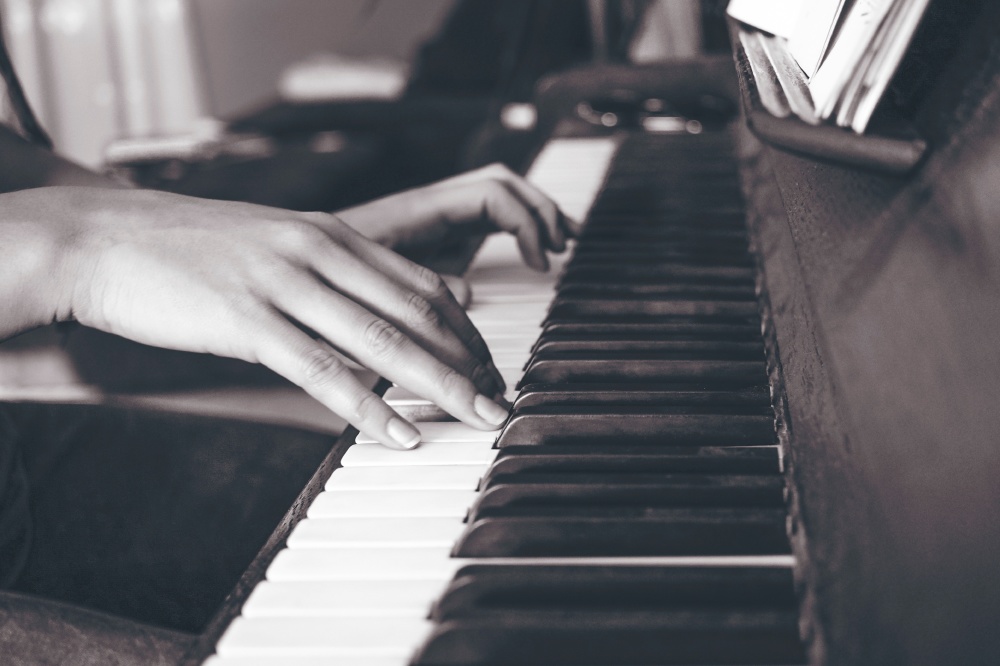By Donny Gruendler, President, MI Online

In addition to improving brain function, learning music also aids in developing greater mental concentration
Learning to play a musical instrument helps keep the mind sharp. Supported by additional research, further music-learning benefits include combating mental health issues including stress, anxiety, and depression, as well as lowering one’s blood pressure. With a broader awareness of the many advantages of music, it poses the question: why aren't more people taking the leap and learning an instrument themselves? Growing up in Detroit, Michigan, I’ve always been surrounded by music, and these experiences have helped me to shape a successful career in music through performing and recording alongside the likes of John Medeski, Kenny Burrell, and DJ Logic. As a result, I’ve learned first-hand just how much joy, and happiness music can bring to one's life.
Memory and Brain Function
Musicians brains function in a distinctly different manner than non-musicians. That is, musicians ‘memory’ and their ‘ability to learn an instrument’ are closely connected, and as a result, the part of a given musicians brain responsible for memory becomes more active and in select cases – can grow larger as well. So, while brain training is closely associated with crossword and Sudoku puzzles, learning a musical instrument can translate into more significant benefits and a substantial grey matter (i.e., cognitive) workout. This workout explains how musicians can practice a piece of music at length and then subsequently perform it with ease – i.e., without looking at the notes on their keyboard, guitar fretboard and the like.
Concentration and Multitasking
In addition to improving brain function, learning music also aids in developing greater mental concentration. To further clarify, when practicing and performing, musicians need to focus on multiple items at once, including (but not necessarily limited to) touch, tone, time/rhythm, and pitch. By developing this ability to concentrate on multiple elements concurrently, you’ll improve your ability to multitask in everyday life too.
Motor Skills and Coordination
From the multi-dexterous drum set to the singular-pitched concert triangle, the world is filled with instruments of all shapes and sizes. Not only do you have the ability to choose an instrument that is uniquely “you”; but each have the ability to exercise your motor skills and coordination (I.e., to varying degrees).
As your fingers need to be placed precisely and carefully to stay in tune, string instruments such as the guitar, cello, bass or violin, are an excellent workout for the development of fine motor skills. These instruments also help to refine one’s ‘bilateral integration,' which is the ability to use both sides of your body together. Alternatively, and if the piano takes your fancy, this instrument will help you to develop dexterity through the practice of effortlessly gliding from key-to-key. Many successful instrumentalists also stress the importance of good posture and a strong core, claiming it makes playing more comfortable. In turn, this translates into more polished performances.
Lower Blood Pressure
Learning to play an instrument can also be influential in helping to diminish stress, a leading cause of high blood pressure. Current findings indicate that music around 60 bpm (beats per minute) most efficiently engages the brain, and causes it to synchronize with the rhythm, inducing alpha brain waves. This process of learning is vital, as it's our brain waves that set the tone for a relaxed and conscious state. Two genres that often use variations of this ‘golden' bpm are jazz and classical, so learning these styles can be particularly beneficial. Professors at the University of Florence in Italy, claim that recent research shows the positive impact music has on blood pressure.
Mental Wellness
It's well-known that redirecting your energy into something positive plays a huge role in preventing anxiety and depression. Many family doctors and counselors suggest focus and relaxation. As a result, practicing yoga and meditation have become essential tools to mental wellness, which can also be applied to learning music as well. By focusing on the melody and the notes you're playing, you will bring attention to the task at hand. To further clarify, immense focus on rhythmic and/or melodic patterns may frequently be both relaxing and soothing.
Sense of Achievement and Perseverance
There’s a wonderful sense of satisfaction to finishing a major project, such as completing an epic trilogy of books or redecorating your home. When the task requires as much time and effort as learning a musical instrument, that sense of achievement is heightened. The process of learning is neither quick nor easy, and there are many challenges on one’s journey to becoming a musician. You’ll need determination and perseverance to perform your favorite song without a single misplaced note, and these skills are also quintessential to everyday life.
With all these benefits (and the bragging rights of having a new skill to flaunt to your family and friends) - it’s time to start learning a new instrument today.
Tagged in blood pressure

